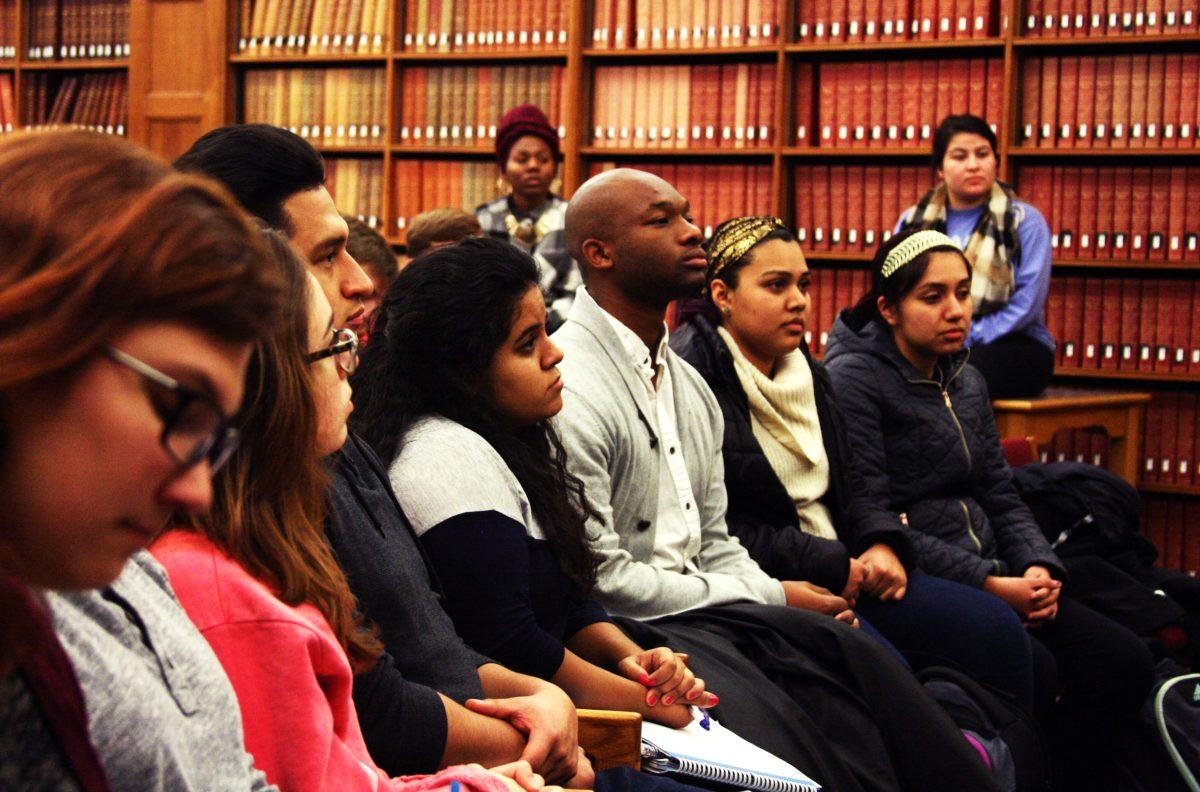BY LORIEN MACENULTY
A reported 897 hate crimes aimed at minority groups in the U.S. occurred in the 10 days that followed the presidential election, according to the Southern Poverty Law Center. While the rate has been decreasing steadily in recent weeks, bias-based aggression is on the rise.
The co-senators of Equity and Inclusion, Deshauna Carter and Kenia Calderon, organized Bystander Prevention Week, a week dedicated to protecting and spreading awareness to minority individuals with high probabilities of victimization.
“After the hate crime that we saw last November, where the dorm was plastered with Trump signs – that happened to a La Fuerza Latina Member – I knew that it was important for us to host such an event for people to be aware of the things that are happening to marginalized communities and be able to do something about it,” Calderon said.
The first event of the series included a viewing of the documentary “Hate Rising.” The 50 minute film follows journalist Jorge-Ramos as he investigates the effect of Donald Trump’s campaign on race relations.
“(Hate crimes) never left,” Carter said. “If anything, they just increased, and that’s why people are noticing them more, because it’s happening more often. But they definitely were happening before.”
Racial profiling is a form of victimization many minorities experience.
“We wanted to make sure people knew their rights,” Carter said, “especially since people from marginalized communities are getting arrested at higher rates and are getting stopped and frisked at higher rates than other communities.”
A “Know Your Rights” session was hosted last Wednesday on campus, featuring law professor and activist Dr. Sally Frank. Frank spoke to the 30 attendees about their rights as citizens when confronted by law enforcement.
Among the issues addressed were an officer’s inability to search a car or house without a warrant and what not to have in pockets when at a protest. On more than one occasion, Frank reiterated that many individuals approached by a police officer have the right to remain silent yet often do not take advantage of it.
She illustrated this concept with an allusion to a scene in “Shrek 2,” wherein a panicked and jailed Donkey blabs on energetically about his right to remain silent. Shrek, also undergoing prosecution, replies, “Donkey, you have the right to remain silent. What you lack is the capacity.”
Last Friday’s self-defense training, held in Sussman Theater, marked the end of the week. Participants of the training learned the basics of protection from assault.
“When hate crimes and harassment happen, it’s not just the person who’s harassing that’s at fault, but it’s also the people around that didn’t do anything to prevent it or stop it,” Calderon said.
Calderon said she has never personally been the victim of a hate crime. As an activist on social media, however, she often is the receiver of typed criticism.
“It’s really easy for people to be mean behind a keyboard,” Calderon said.
Both Carter and Calderon said that the best defense against passive bystanding is awareness.
“The first thing (people) can do is start learning what exactly marginalized communities are threatened by,” said Carter. “What is happening to them that they would say that ‘by watching this happen to me, you are being a bystander?’ So going out, talking to those communities, going to multicultural events, learning what their struggle is, and, by doing that, you know when you are being a bystander.”







